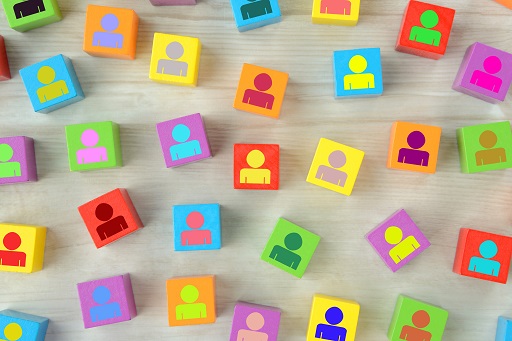2.1 Changing workplace demographics
‘Workplace demographics’ relate to the characteristics of individuals within your workplace. Categories include age, gender, ethnicity, education and religion, essentially describing the differences and similarities between you and your colleagues.
As workplace demographics become increasingly diverse, this can play a part in our career resilience. If we don’t take the time to understand our colleagues’ perspectives and experience, this can lead to conflict – and conflict in the workplace can have a negative impact on career resilience. One example of changing demographics is the multigenerational workforce.
The multigenerational workforce
For the first time in history, up to five different generations could potentially be working alongside each other, ranging in age from 18 to 80. Each generation brings its own characteristics and priorities, and this can have consequences in a shared workplace, particularly around different communication styles. If poor communication leads to conflict, that can have an impact on our career resilience.
Boogaard (2019) describes several tips to help us thrive in multigenerational workplaces, including:
- Challenge your assumptions – there’s no longer an obvious correlation between age and knowledge and experience.
- Be explicit about how you prefer to communicate – some generations prefer written communication, others prefer to talk.
- Explain the why behind your actions (communication again!)
As you’ve already seen in Week 2, personal resilience is stronger when backed up by supportive relationships, so ensuring that your workplace relationships are good can only enhance your career resilience.
Activity 3 Generational differences
Spend a few minutes reflecting on people you’ve worked with who have been significantly different in age to you. Were there any challenges, for example, around communication or expectations? Make a list in the box below.
Now think about the benefits of working with those individuals. What did you learn from their perspective? Did they have a positive impact on your own career resilience? Make a note here:
Discussion
Looking through your list of challenges – could you have done anything differently in order to address them? Perhaps some of Boogaard’s ideas around making it clear how you prefer to communicate or explaining why you took certain actions might have worked.
If you felt they had a positive impact on your career resilience, was that because you felt you had their support? Perhaps they shared advice and experience that was useful in career decision making. If not – could you have asked them for advice that would have been valuable?
Another significant area of change over the last decade has been developments in technology, and you’ll explore that in more detail in the next section.

